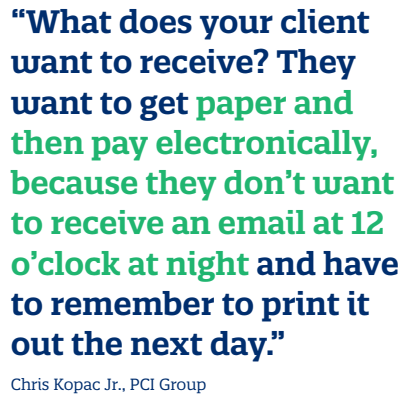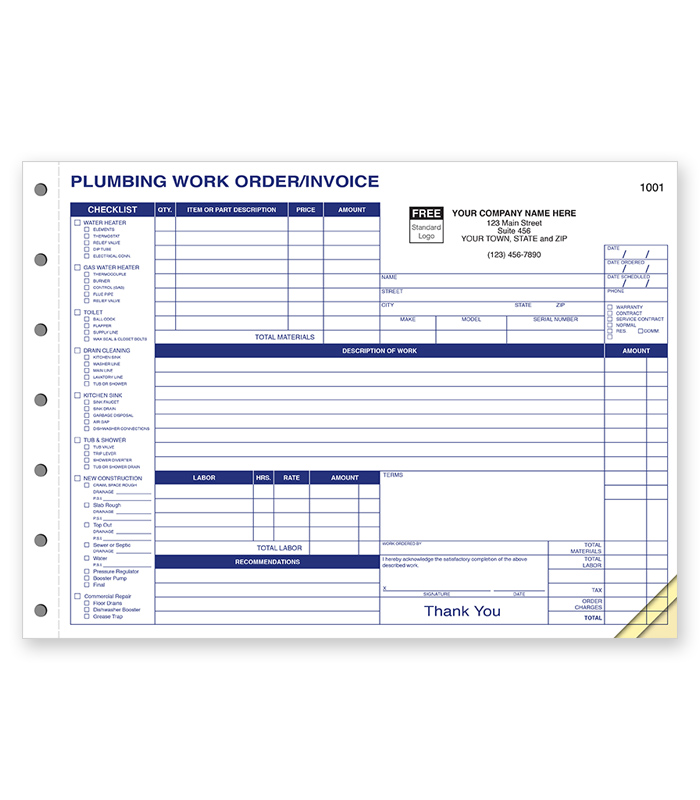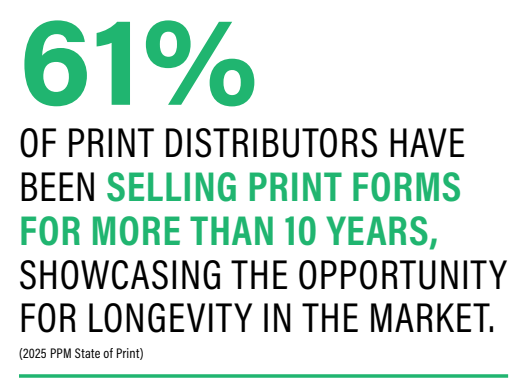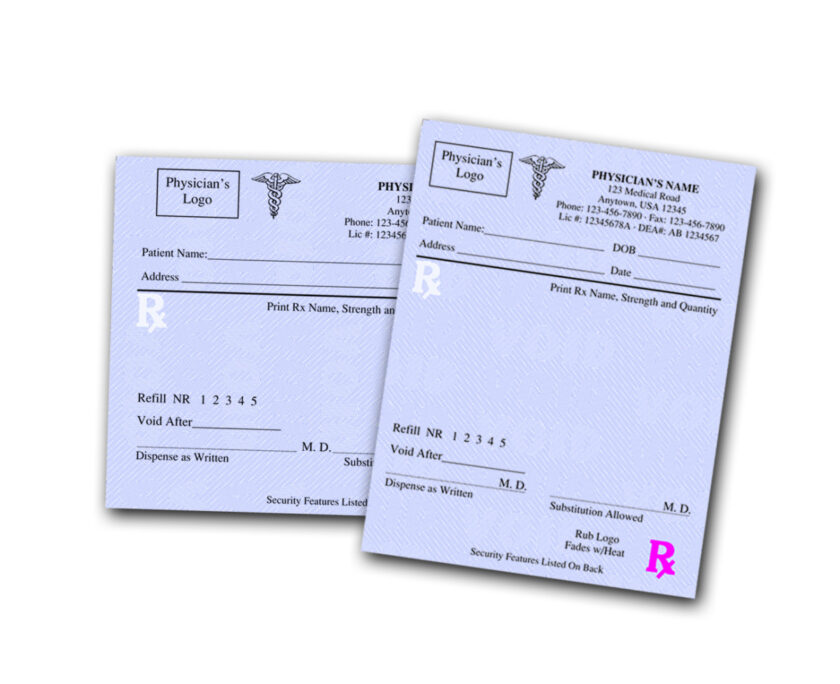Any distributor naturally is seeking stability. The goal in finding new customers is to turn them into loyal repeat customers. If they’re investing in equipment for printing and decoration, they want something that won’t break down on a regular basis.
Consistency and stability are at the heart of any successful business. In print, those traits aren’t easy to find, but are still very possible.
Even as digitization has replaced many processes that used to be done on paper, there’s certainly one sector (among many) in print that is resilient and can provide the comfortable stability a distributor is looking for: business forms. These are a constant in a wide range of industries – including finance, manufacturing and healthcare – and can provide steady repeat orders on items like invoices, billing statements and prescriptions. It can take a commitment of resources and attention to succeed in this field, but do it right and you’ve got the endless repeat orders that any business desires.

It’s Not Passive Income
Just as “print” is a term that can describe a huge collection of services and even industries themselves, “business forms” is something of an umbrella phrase. It covers things such as invoices, billing statements, collections notices and shipping forms. They can be paper forms that are used in-house for transactions and logistics as well as mailed directly to customers.
Yes, even direct mail overlaps with business forms. Direct mail, as many people know it, is typically done for the sake of marketing and advertising, but the other side as it relates to business forms is transactional mail – something that PCI Group specializes in. And while the Fort Mill, SC-based business has been very successful with invoices, billing statements and other transactional forms on paper, President Chris Kopac Jr. warns that it’s not for the faint of heart or the hobbyist distributor looking for a new and easy revenue stream.

For one, he says, equipment such as inserters can run as high as $1 million or $1.5 million and beyond. Beyond that, when working with financial institutions, insurance agencies or medical institutions, printers need to take even more care to avoid errors that could be costly.
“We’re one of the most secure organizations out there,” Kopac says. “I have a team of three people just doing compliance. Everything we do in our world has to do with security compliance. Your systems have to be hardened, your firewalls have to be hardened, your network has to be hardened.”
For purely advertising mail, if a piece ends up at the wrong address, it’s not the end of the world. It might even still result in a sale. But when something has to do with finances or medical information, the stakes become much higher. “If I’m trying to send your health bill to your neighbor, that’s a problem,” Kopac notes. Dealing in business forms requires certain knowledge that some distributors might not have already, such as HIPPA regulations when working in healthcare, for example. Because of this, Joe Falcone, chief operating officer for PPM Top Print Distributor The Sourcing Group (asi/330100), warns that for certain fields, distributors “would truly need to spend some significant training and education to accomplish it successfully to eliminate the risk of lack of knowledge,” he says.
Kopac points out that you can’t absent-mindedly “dabble” in this field – but it doesn’t mean you can’t be diversified in your offerings. Kopac admits he knows folks, especially smaller companies, that still balance transactional print pieces with marketing mail and even promotional items like T-shirts or other promo apparel and hard goods. And, even in the age of email and rising postal costs, the value of a print product remains.
“What does your client want to receive?” Kopac asks. “They want to get paper and then pay electronically, because they don’t want to receive an email at 12 o’clock at night and have to remember to print it out the next day.”

Finding Your People
Beyond mail, business forms can include traditional single forms or multipart forms like you would fill out at the doctor’s office, banks or use in manufacturing facilities. These are three sectors that still heavily rely on print.
Falcone says that his company still finds clients for their business form products in “virtually every marketplace, from small businesses to large.”
Bob Saunders, vice president of sales for Wise Business Forms, adds that while new buyer verticals aren’t necessarily popping up, there are certain verticals where new end-users appear. “These include home services like lawn care, pest control, home repair, HVAC service providers and electricians,” Saunders says. “Additional markets that continue to be predominantly print-based include government, manufacturing and distribution, automotive and food services.”
Using techniques such as web offset, sheet-fed, digital and flexo printing, Wise prints statements, order forms, purchase orders, checks, delivery tickets, estimate and repair forms, claims and benefits forms, prescription pads, freight bills, quality control bills, lease and rental agreements, and maintenance and inspection forms.

Wise, which is based in Alpharetta, GA, has obviously invested quite heavily in these capabilities. But, Saunders asserts that those looking to sell print products in the business form category don’t have to make the often costly and intimidating equipment investments if they don’t want to initially.
“There are plenty of trade-only print manufacturers that sell through re-sellers,” he says. “No equipment is needed.”
If that’s the route the distributor chooses to take, they can start by integrating business form products into their existing promo sales in popular verticals like healthcare, finance and automotive.
“Ask for the referral within the account,” Saunders says. “If the customer is already buying promotional products from them, ask who buys their printing. Their customer is buying it from someone – it might as well be you. And it’s much easier to penetrate an existing customer than to find a brand



